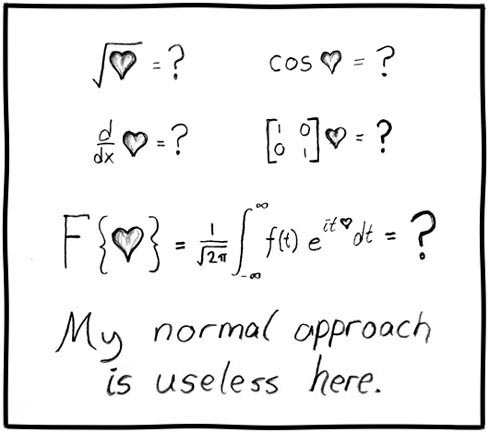This has the potential to be long, so bear with me.
I recently came across this post from Seth Godin. This article that Mr. Godin linked to really captures something that I've been going through for many years, but had a hard time really defining in a concrete way.
I'm one of those people whose mind is always going a million miles an hour in multiple directions at the same time. My head is filled with thoughts at all times. I have gotten good at minimizing the blur when I need to (for example, taking an exam, or focusing on a work assignment so I can complete it on time), but the blur is always there. It gets especially bad when I lay down to go to sleep at night. Suddenly I don't have basic bodily functions like movement and keeping my balance to occupy part of my brain, so even that part starts going off in random directions.
I think a lot of people really have brains like this, constantly in motion. However, modern American society has taught us to tame our brains by spending our free time watching television, or otherwise being passive. People who rebel against this concept are seen as being "weird," or "odd." Heck, even people who read instead of watching TV are looked at a little strange. They're rebels against the system, and the system despises them. I even remember reading an article in Newsweek a few years ago when a writer lambasted President Bush because he didn't watch TV. "How could he know what was going on the world if he never watched TV?" was the author's question. My response was "Maybe he talks to people," but it was clear that to the author that TV was the only appropriate method for really understanding the country. I'm still baffled by that concept.
Back to the article. The money part comes when the author is talking to a TV producer about Wikipedia. The TV producer couldn't understand how people had the time to be involved in Wikipedia, constantly editing articles to try to improve the postings. The response was that they weren't watching TV, so they had the time.
So that's the answer to the question, "Where do they find the time?" Or, rather, that's the numerical answer. But beneath that question was another thought, this one not a question but an observation. In this same conversation with the TV producer I was talking about World of Warcraft guilds, and as I was talking, I could sort of see what she was thinking: "Losers. Grown men sitting in their basement pretending to be elves."
At least they're doing something.
That last statement is why I constantly feel compelled to write and be engaged in my hobbies. I can't stand just sitting back and letting passive entertainment wash over like some kind of numbing substance, dulling my senses. I need to do something. So I review anime soundtracks, or write my opinions about books I'm reading, or I try to develop alternate rules for games I like, or I volunteer time with a charity.
This is also why I have a hard time watching sports on TV. I like going to sporting events, because when I'm there all my senses are able to be in on the action: I can feel the emotional waves coming off other people, I can smell and hear the entire stadium, I can see more than just the action on the field, I can take it all in, and my brain is satisfied. Just sitting at home, after not even 10 minutes my brain starts rebelling against me, wanting me to take action of some kind.
Note that I think all TV is bad; I enjoy some of it. For some bizarre reason I thoroughly enjoy watching Wipeout, especially when people try to jump across the 'big balls' and almost always fall off in embarassing ways. It's very funny. My brain won't let me be comfortable with that, though; it's always pushing me to do something else, to be mentally active, even if that something else isn't very constructive. Let's be honest; developing new army lists for a miniatures wargame is not a 'constructive' use of my time. The world is not made a better place when I dabble around with a fictional story I'm writing. Discussing variant rules for Kingmaker with members of my boardgame club does not feed starving children. This stuff does not really matter in the big scheme of things.
But at least I'm doing something.
